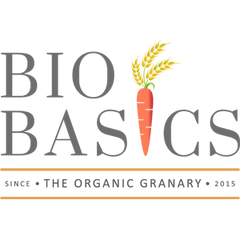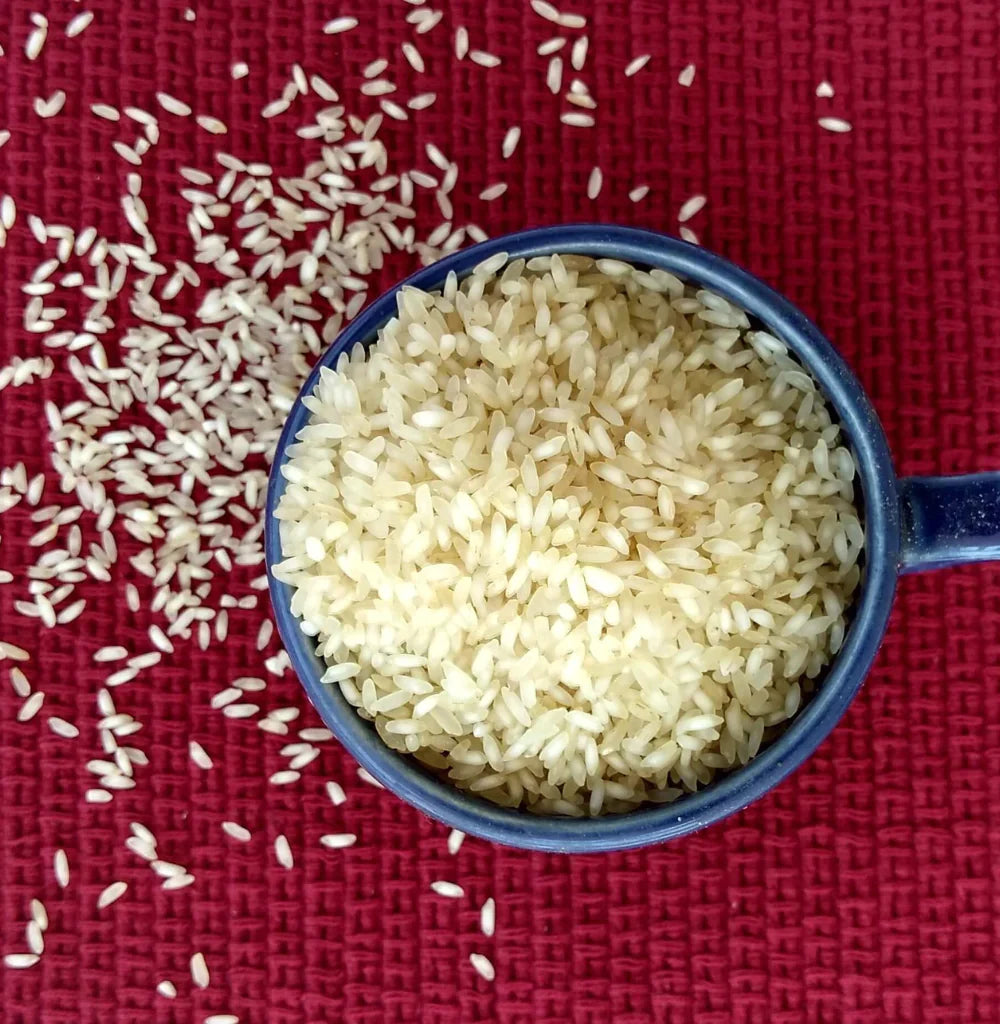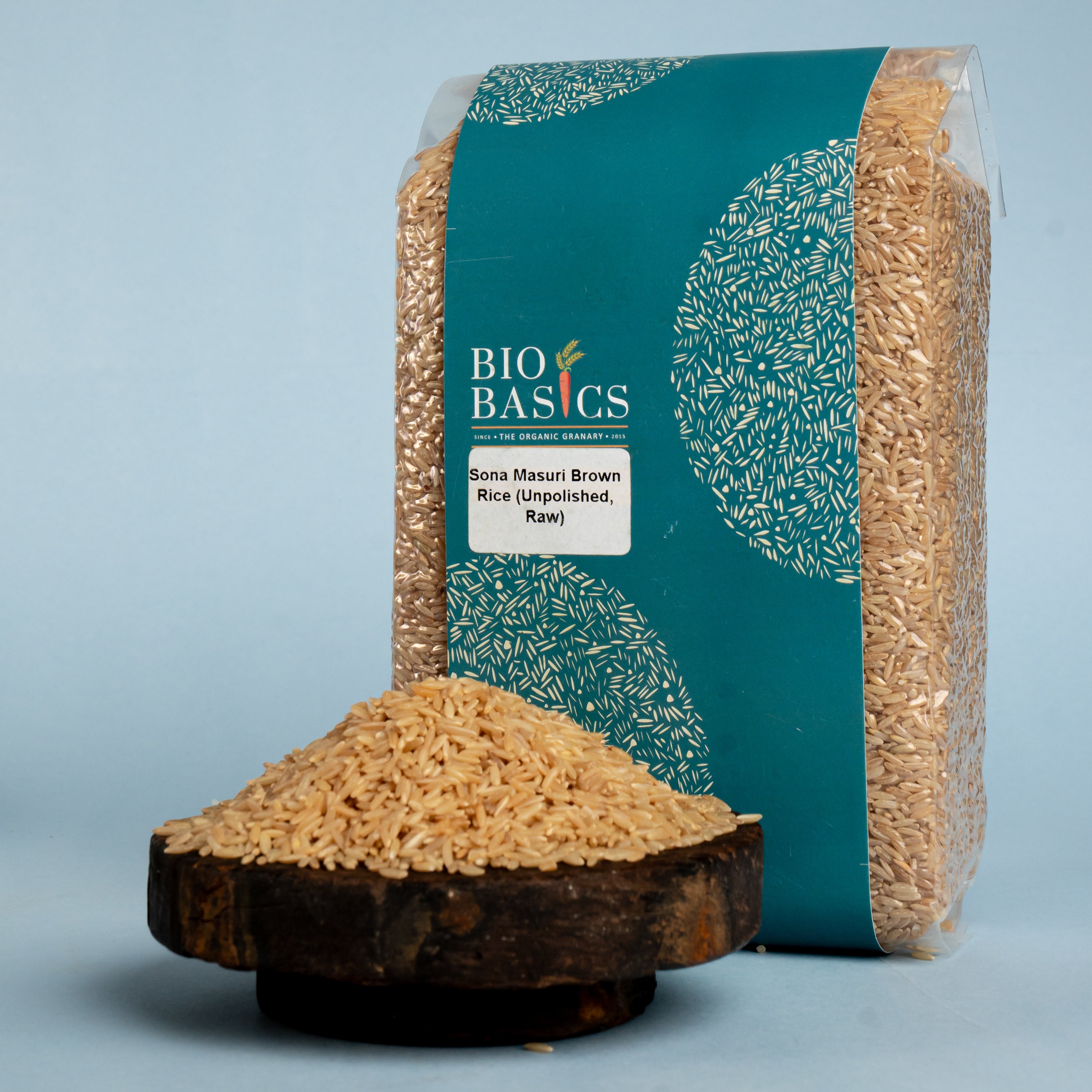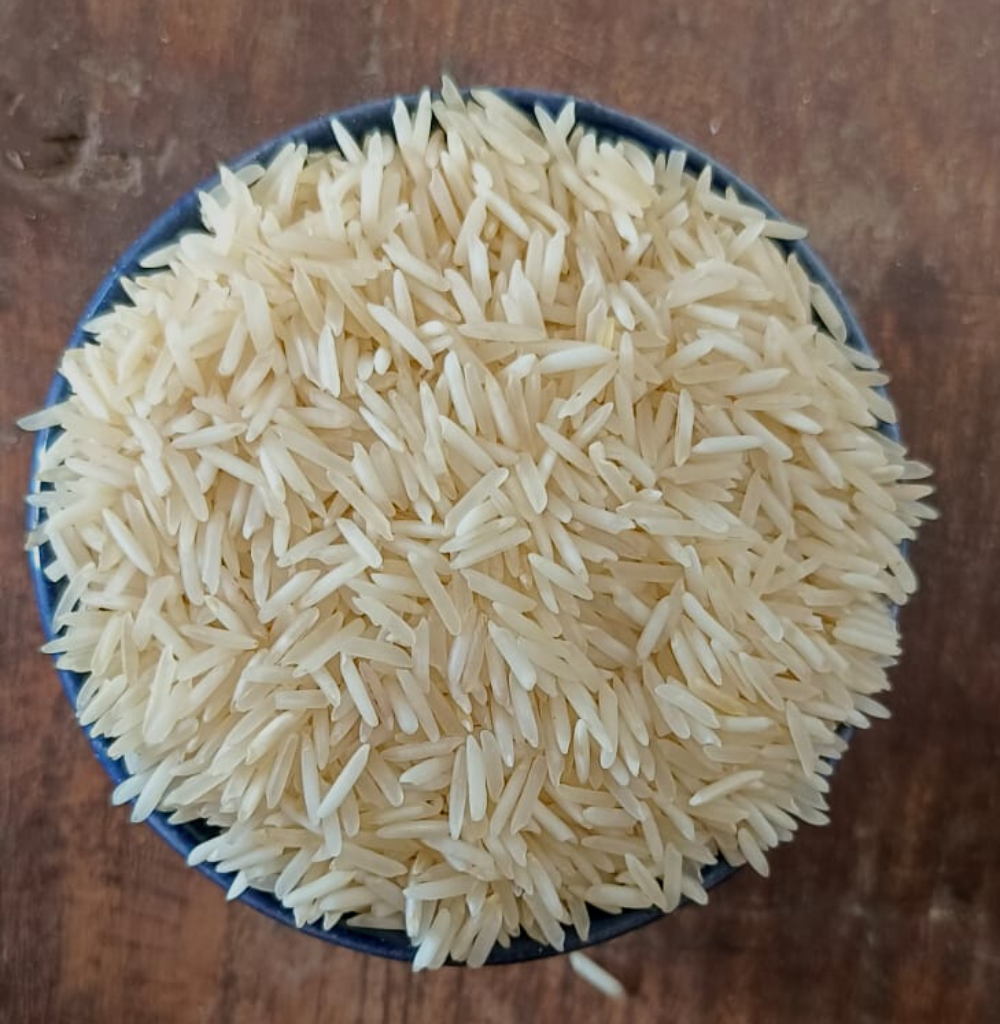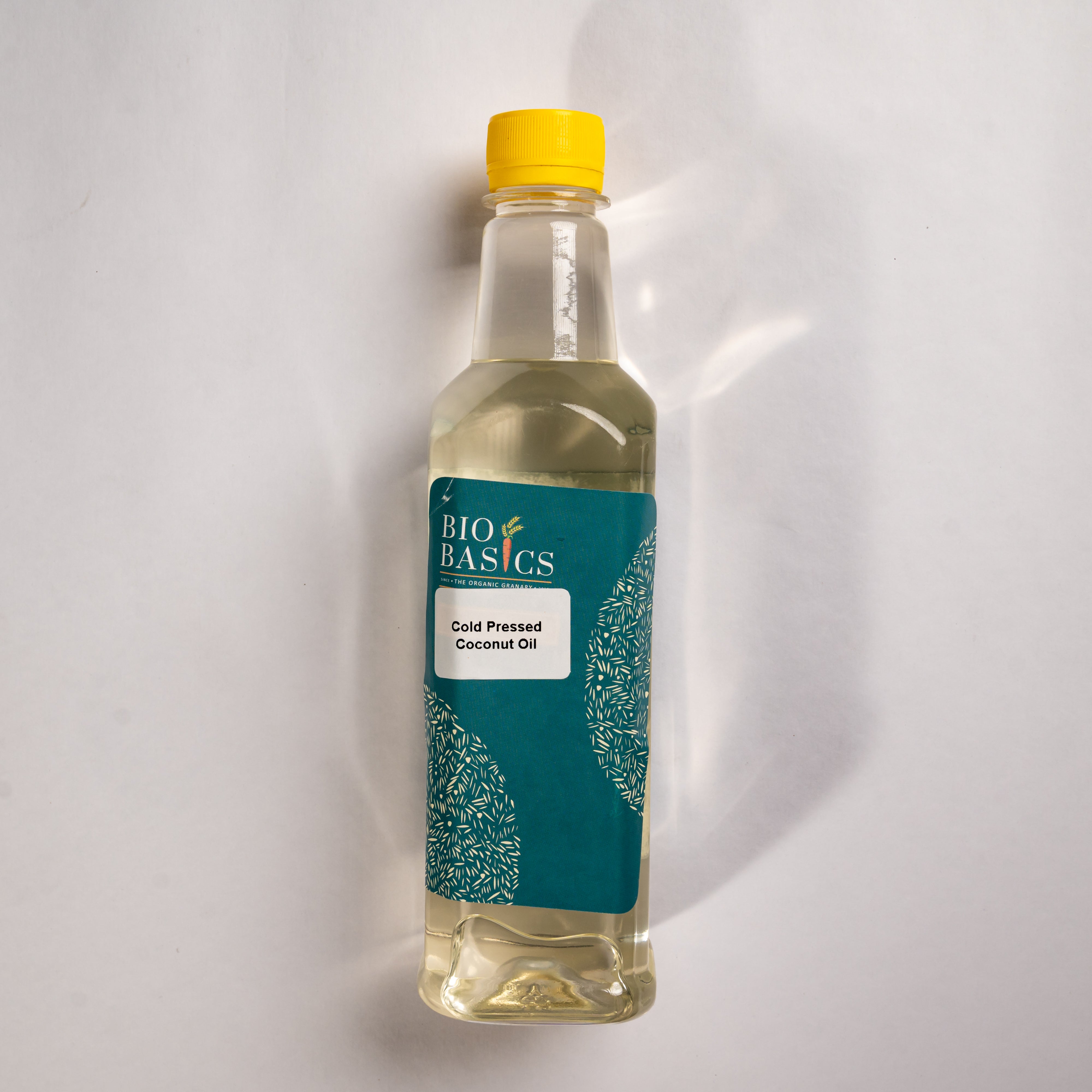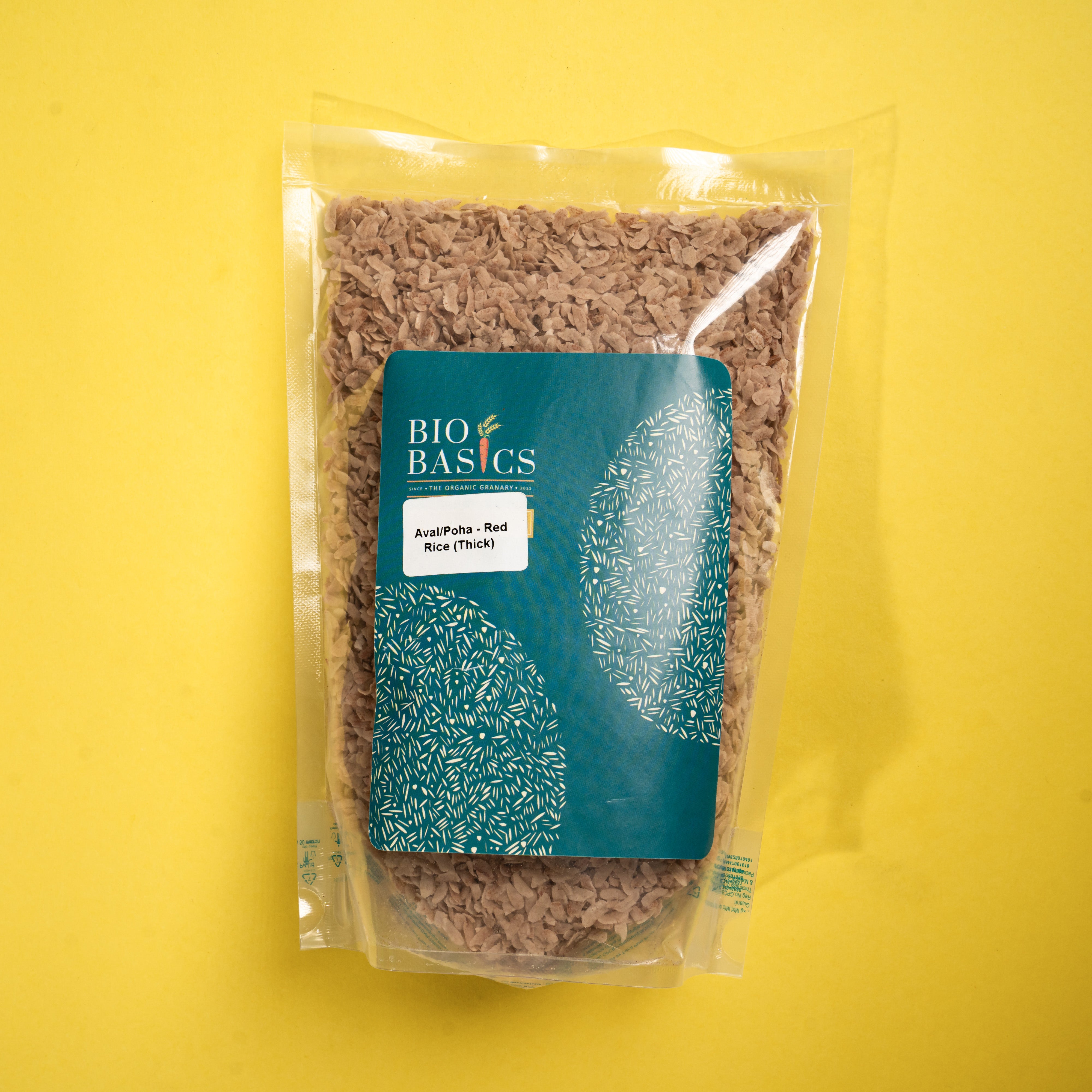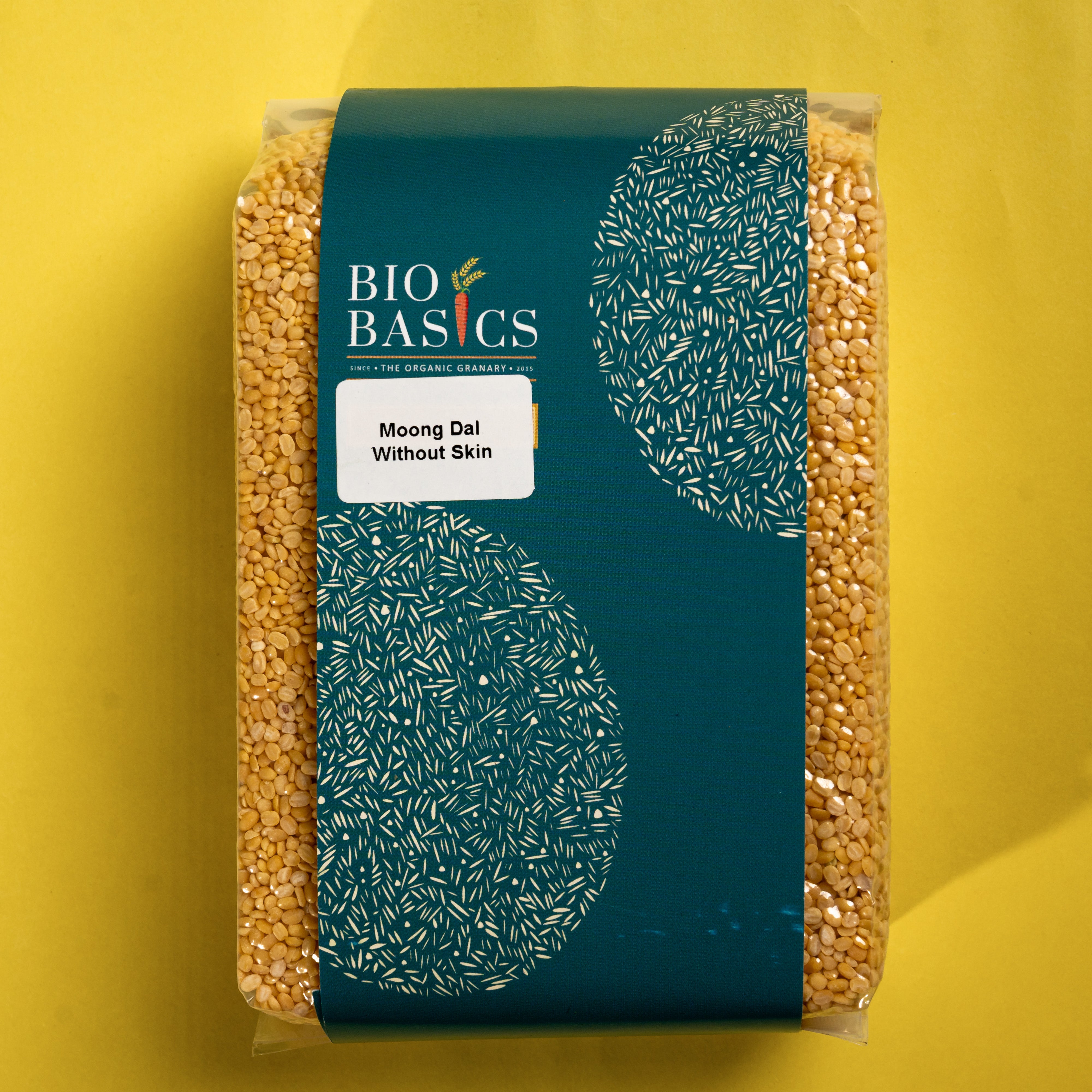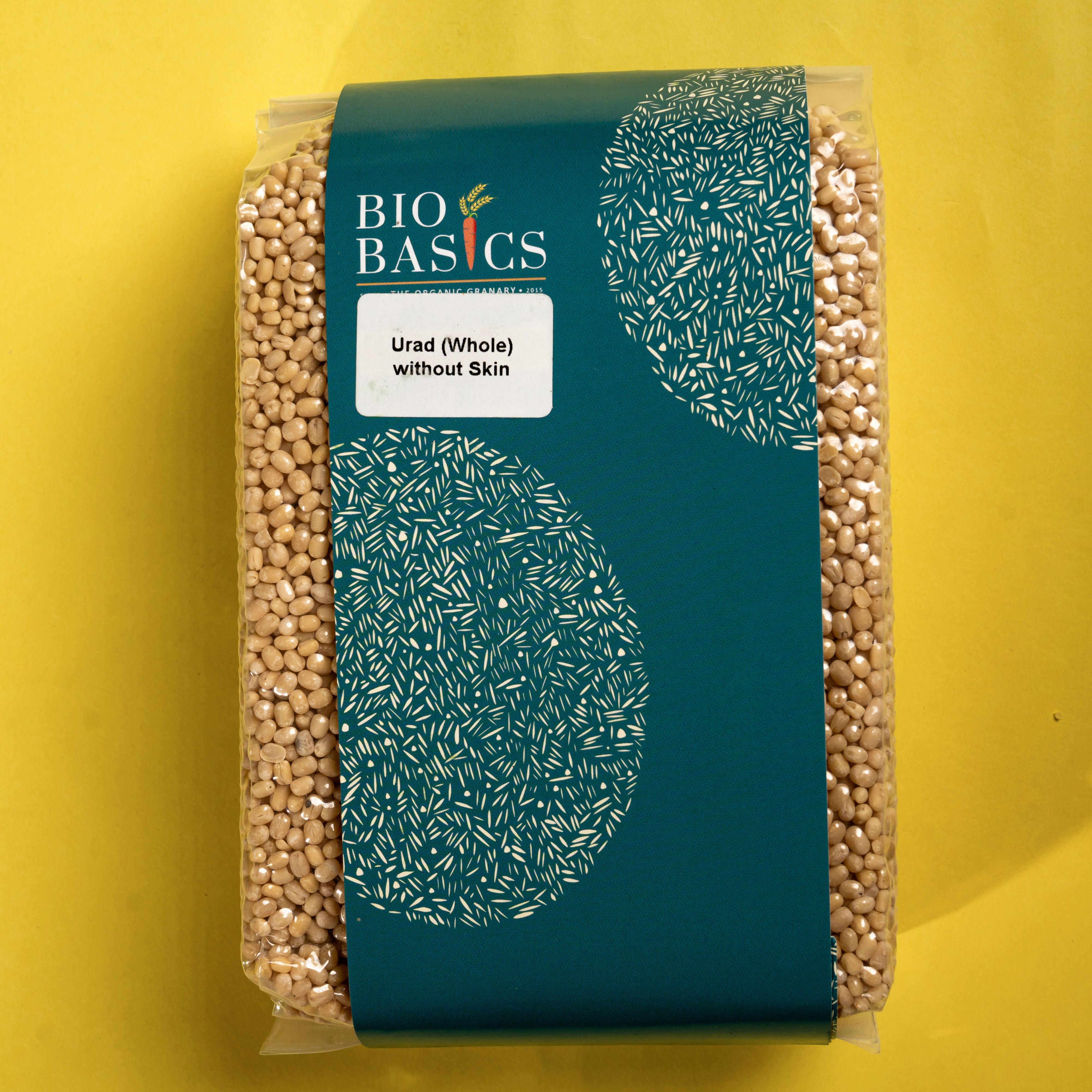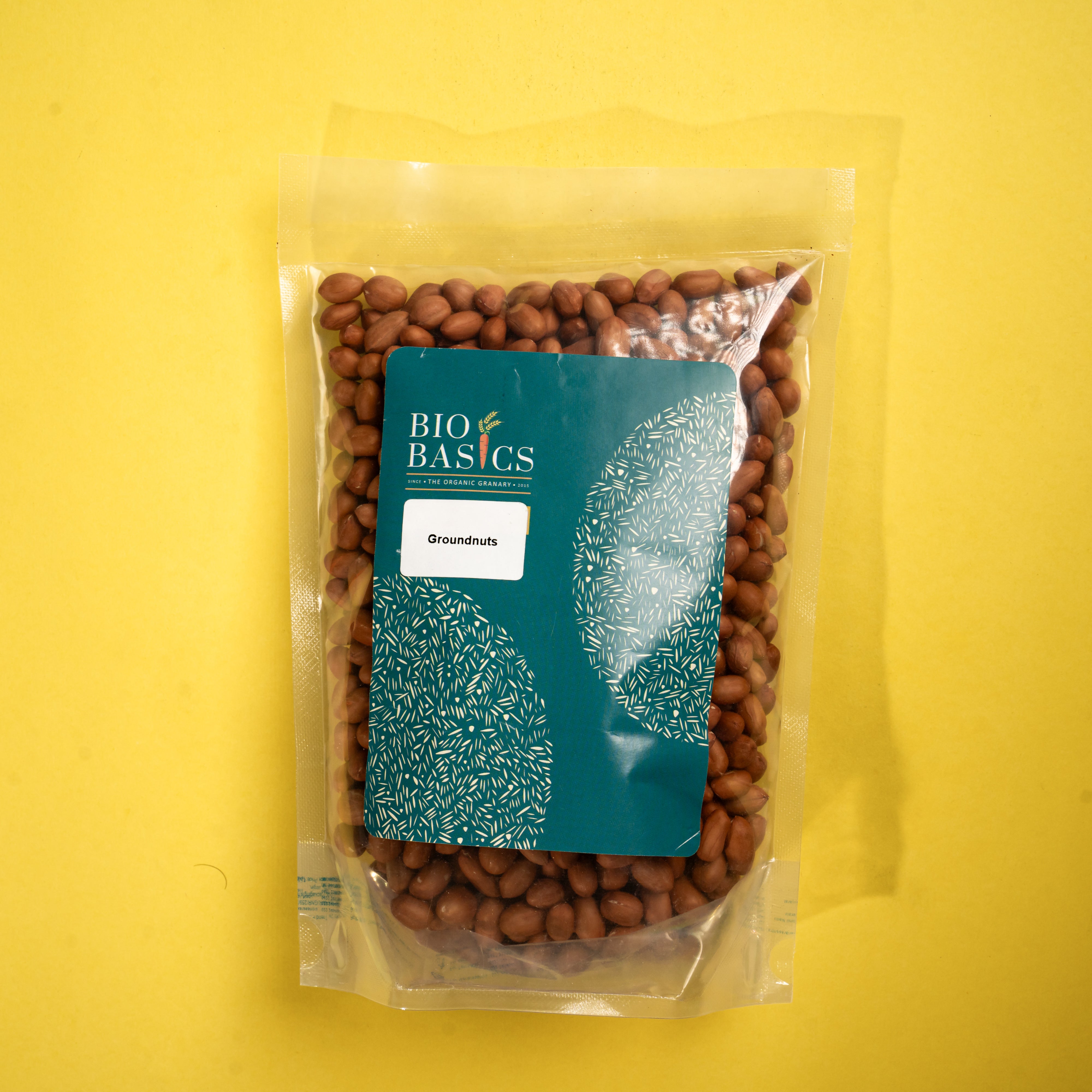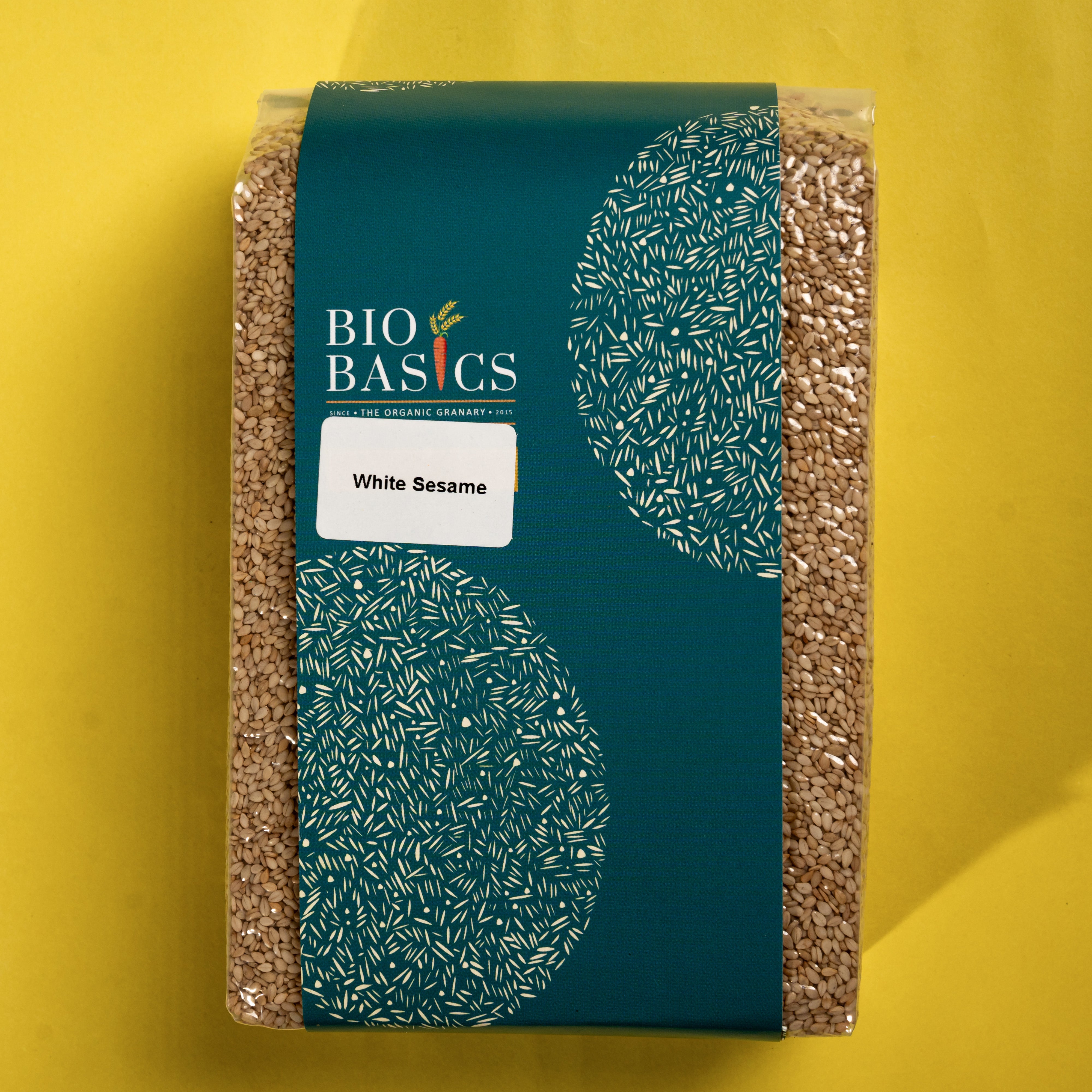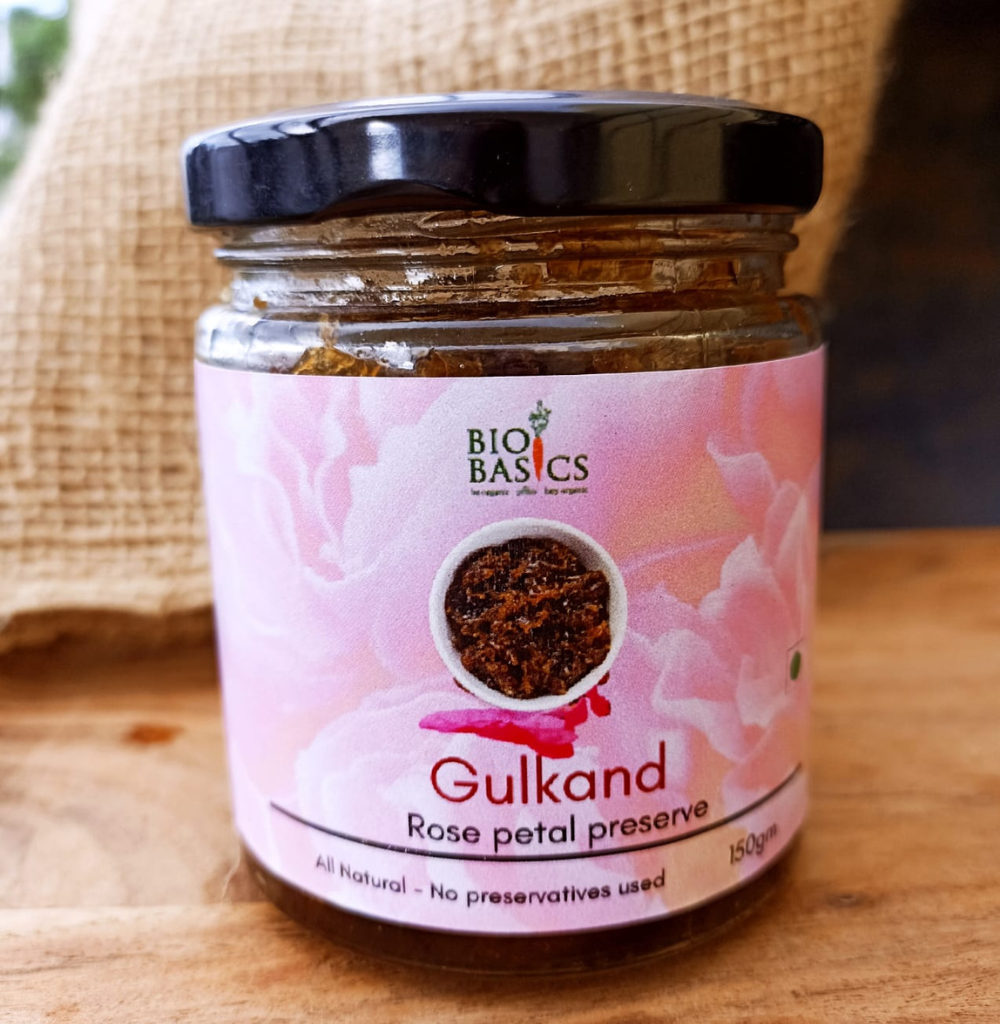
Today, Bio Basics offers 300 organic food items made available both online and offline across the country. At the same time, we are also the largest or most diverse granary of organically-grown heritage traditional grains. Our 9-year journey has seen us grow not only in the number of products and customers, but also in our own understanding of the food system prevalent in India.
Before we talk about the top 3 reasons why one should go organic, we must first define what we mean when we say organic. When we say organic, we mean food that is naturally grown without using any chemicals whatsoever across the entire life cycle of the crop - ranging from the seed to preparing the soil to caring for the plants as they grow, to fertilizing the soil for better production, harvesting, storage and even transportation. In this entire cycle of food production of any crop, be them grains or oils or spices or fruits or vegetables, organic food requires that no chemical is actively used in any of these activities leading to the production of the crop. But this is only a limited definition.
At Bio Basics, when we say organic, we not only mean that no chemicals have been used, but we also mean that the food or the crop is minimally processed, also known as whole foods. This means that the crop is not highly processed in any way before it comes to you, the consumer. So, by definition, all the highly processed foods do not qualify organic as far as Bio Basics is concerned. This is an important distinction, because, today, in the market, there are many processed foods which claim to be organic in its limited definition of it being chemical-free. Even the organic certification agencies and the regulators do not insist that organic should mean whole foods. For them, organic food means only chemical-free, whereas the spirit of organic foods is usually ignored.
Now that we have understood organic foods, what it means, and its definition, let us look at what are the top 3 reasons one should consider going organic.
1. Health:
By the use of chemicals in agriculture for the past several decades, today most of the food that is produced or processed, from farms to factories contains chemicals. Chemicals are in the form of pesticides, fertilizers, herbicides, weedicides, fungicides, used not only while sowing the seeds, preparing the soil, managing pests, fertilizing the soil and also for storing, harvesting and transportation. It is a very dangerous concoction of chemicals that food is exposed to before it reaches us on our table. And that is when we are talking about minimal processing. If it goes through extensive processing, like extrusion, refining, blending or in processed foods, numerous food additives that are being used. Chemicals are added for flavour, colour, texture, higher shelf life and so on. So in essence, what is available in the market today is laden with chemicals, unless you know for sure the source of the food and that it is organically grown.
So why are these chemicals harmful to our health? Most of these chemicals are in the category of what are called EDCs (Endocrine Disrupting Chemicals). EDCs disrupt the functioning of the endocrine system of our body. As a result, our endocrine system is made to function at a suboptimal level. The Endocrine system in the human body is responsible for many functions, one of which is to regulate the hormones produced by the body. When the Endocrine system gets disrupted, the hormone production is also affected, leading to a host of diseases. Today, many of the lifestyle diseases, like diabetes, heart disease, obesity, PCOD are directly linked to chemicals in food. These chemicals introduce toxins into the body and the toxin load of the body increases with consumption of such chemical-laden food day after day, meal after meal. All these toxins, and the disruption of the endocrine system leads to havoc in the human body, which then shows up in different individuals as different ailments.
Organic whole foods are also known to be tastier than the chemically produced conventional produce, because the soil on which an organic produce is grown is full of microorganisms, and the entire ecology in the soil is allowed to thrive in the absence of chemicals, as Nature intended. For instance, in a typical tomato, there are 53 micronutrients that makeup the taste of a tomato. When the tomato is grown on a soil which is laden with chemicals, most of the micronutrients are lost, because of the poor soil. As such, chemically grown tomatoes are said to have only 13 micronutrients. This is not only important from a nutritional point of view, but also is very critical to the taste of the produce. So in effect, organic produce is known to be tastier than chemical produce. Taste is a subjective matter, and one will have to actually taste it to believe it. The difference in taste becomes very obvious in the case of fresh produce like fruits and vegetables.
2. Farmer welfare:
We must remember that we exist in an ecosystem with several individuals playing the vital role. We do not exist in a vacuum. Farmers and the farming communities engaged in agriculture are part and parcel of us. Much before modern technology dominated our lives, human beings have relied on agriculture to sustain themselves and thrive. But of late, we have ignored farmers, as we became more urbanized. Those who work on the fields have become less important to us, because what the farmers produce has become commodities. It is reduced to simply a price and a product. But as the name suggests, it is “agriculture”, not “agri-production”. Agriculture indicates that farming is part and parcel of our lives. But unfortunately, farmers have been ignored in India and globally, leading to unprecedented levels of suicides among farmers, because of debt they take on grow crops, which promise to give them commercial profits, but unfortunately do not deliver as desired.
Organic farming is a more sustainable and sensitive method of growing crops. It ensures that the working conditions of the farmer is safe, also ensures that the farmer’s family who live on the land where they produce the crops, and also the farm labourers who work on the fields are safe and not exposed to such dangerous chemicals like pesticides. Organic farming also ensures that the farmer gets a decent remuneration from customers like you and me. As organic products are free from chemicals and better for health, these are more sought after, not only in India but across the world. India has the largest community of organic farmers in the world ( 8 lakh organic farmers). A substantial portion of our organic food production however is exported to other countries, because they value it more than what we domestic consumers do. But the domestic consumption is also now growing very fast as well in recent years. Because of the supply and demand considerations, the farmers get a good remuneration for their work.
Organic farming also ensures that the farmers are respected, because under organic farming, farmers cannot just grow their produce without any skill. Farming is a skill and passed down from generation to generation mostly among farmers. Only some part of it is documented and taught in Agricultural Universities, but as we all know, farmers don't go to Agriculture Universities. Farmers learn the techniques of farming, of knowing the crop and the soil, from their parents. So this skill is required for organic farming. So when we buy organic food, we are respecting that very skill and thereby respecting the farmer who produces organic products.
Organic farming also reduces the risk that the farmer takes. Under chemical farming, the farmer buys almost everything from the market. The chemical farmer is a consumer first. She buys seeds, pesticides, fertilizers and many other items from the open market. Whereas an organic farmer produces most of these items - be them seeds or pest repellents, or fertilizers - in her own farm using biomass, cow dung and many other methods. As a result, the organic farmer invests less capital in any given season for any given crop. Hence the risk undertaken by such an organic farmer is limited. When the climate goes bad - excessive rains or a drought - the organic farmer may lose part or even all the crops. But it does not affect them as much as it would affect a chemical farmer who has purchased all these inputs from the open market by paying a high price, and that too, by borrowing money. That is how most of the chemical farmers end up in debt to fund their farming season, and when the climate goes bad, or if the market for the produce collapses, they are left with a high amount of losses, having to pay back loans which they have taken. This is the debt-trap into which most of our farmers today unfortunately live.
Organic farming also ensures that the farmer can maintain the fertility of the soil of her land. By using chemicals in the land, the farmer depletes the fertility of the soil. The ecosystem in which those crops are grown suffers immensely, thereby reducing the fertility and the yield that he can expect from his land. It is now well known that farmers use increasing amount of pesticides and fertilizers year after year to get the same amount of crops. This depletes not only the fertility of the soil, but also depletes the profit margins that the farmer has when he sells the produce in the market.
3. Protecting the environment:
We all know climate change is here causing havoc in state after state in India. One of the key contributing factors for climate change is the extent of greenhouse gases produced by agriculture inputs and Agriculture in general. Most of the chemicals used in agriculture are based on fossil fuels. The more we use these chemicals, the more fossil fuels are being burnt in the production process. At COP28, we have committed to reduce our use of fossil fuels by a third, by allowing renewable energy to contribute a third of the energy requirement of the world. This requires that we reduce the use of fossil fuels, thereby reducing the use of chemicals used in agriculture. It is very clear that organic farming impacts the environment much less and contributes to climate change much less than chemical agriculture.
Besides, the chemicals used in chemical agriculture contaminates our soil, air and water. Particularly when it comes to groundwater, which is used for a variety of purposes, chemical contamination is high, thanks to chemical farming.
When it comes to water usage, agriculture uses the most amount of water among all activities of human beings, and within agriculture, chemical farming uses more water than organic farming, simply because these chemicals used on the soil among the plants creates a chemical exothermic reaction, which generates a lot of heat and therefore requires a lot more water than required otherwise. As a result, organic farming does not require much watering and relies on moisture within the soil.
Finally when we go organic, we also encourage Agro-biodiversity which means that we will not rely on any one kind of crop variety to feed humanity. In other words, we will not eat only one kind of rice or one kind of wheat. Organic farming allows, as found in Nature itself, multiple varieties of a single crop to survive. There are thousands of varieties of rice and 100s of wheats, and all of them can be grown very well under organic farming, and do not respond to chemicals much. By using chemicals, we are restricting the number of Crop varieties which respond to chemicals, and thereby, restricting the number of varieties that we eat. This has a direct impact on our food security, because we are heavily dependent on one particular variety, which can catch a disease and get exterminated completely, like the Irish Potato famine of 1845.
It also challenges the food sovereignty of India, where we will be dependent on other Nations to feed our population, if any one crop is completely exterminated, because of any disease or climate effect. By having Agro-biodiversity, we can ensure that all the varieties of vegetables, fruits, tubers, spices, grains and pulses are grown in an eco-friendly manner, so that we are not dependent on any one or two crops for our survival. This therefore is the ultimate reason why we should consider going organic, support organic farmers, and support companies like Bio Basics who are committed to organic farming, organic farmers and the well-being of consumers and the environment as a whole.
